New national survey shows most UK adults don't know the full cooling power of urban trees
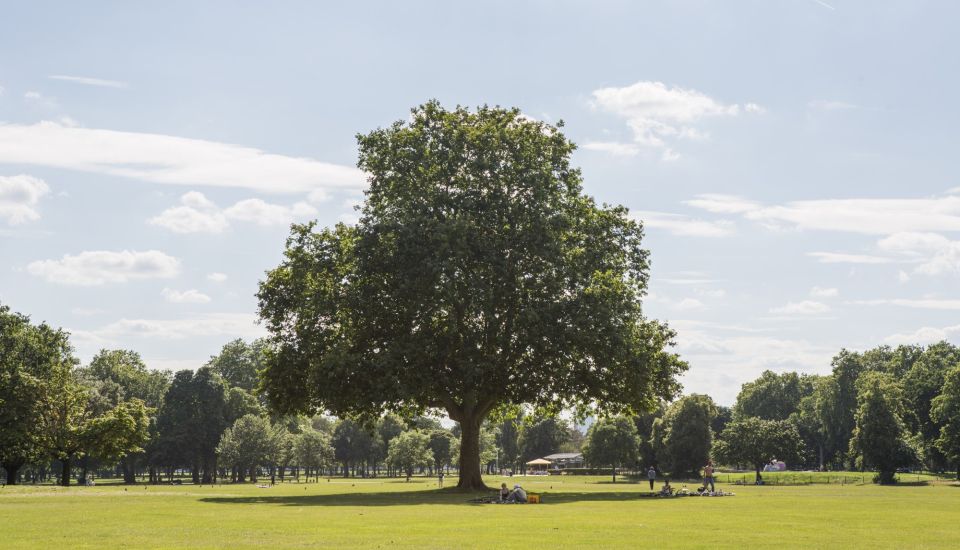
As cities experience hotter temperatures due to climate change, people’s health and wellbeing is being put at risk. Trees are one of the best nature-based solutions to offer respite, yet a new national survey shows that the vast majority of UK adults (88%) underestimate or do not know the maximum cooling effect of urban trees, which can be up to 8 degrees Celsius.
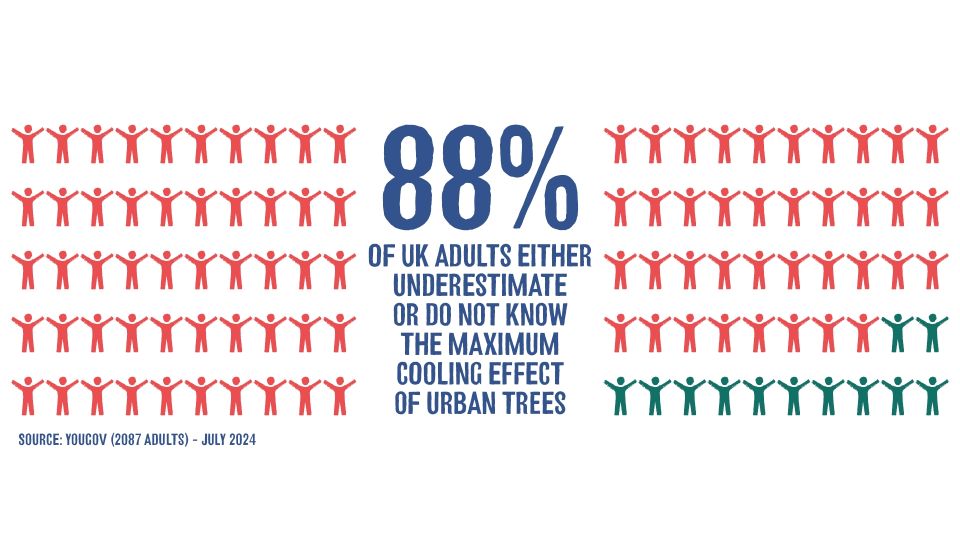
Global temperature records have been broken yet again this summer, and our towns and cities are facing unchartered levels of heat. Over 80% of the UK population live in cities (GOV.UK) which suffer more heat stress than rural areas due to the urban heat island effect, where hard surfaces like roads and roofs retain heat and have less vegetation to provide natural cooling. Exacerbated by the effects of climate change, these high temperatures cause a host of heat-related health issues, such as heat stroke and sudden heart attacks, often affecting the most vulnerable. Heat-related mortality has been identified as a key risk to human health, and is on the rise.
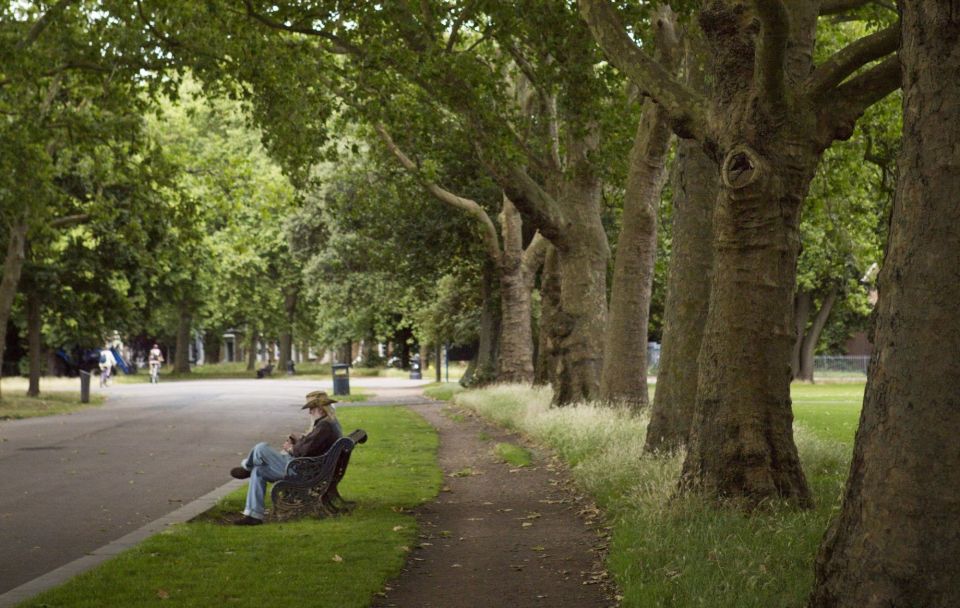
Trees can become part of the solution to heat-related health impacts. This YouGov survey, supported by players of the People's Postcode Lottery, shows that whilst 86% of UK adults agree that trees are important to help cool our towns and cities, most either underestimate or don't know the maximum cooling effect of urban trees, which can be up to 8 degrees Celsius (according to Forest Research). We operate in cities across the UK to increase awareness on the multiple benefits of urban trees.
We are well versed in the benefits of trees when it comes to helping wildlife thrive and the positive impact they have on our mental wellbeing. But it’s apparent that trees also have a vital role to play in helping increase the resilience of our cities to hot summers and the effects of climate change. I’m really pleased players of People’s Postcode Lottery are supporting Trees for Cities work with over £1 million in funding raised so far.
Laura Chow, Head of Charities at People’s Postcode Lottery
The YouGov survey also highlights a disparity facing neighbourhoods across the UK in having limited access to trees and their essential benefits. The 3/30/300 rule by the Nature Based Solutions Institute states that the nearest high-quality public green space should be no less than 300 metres from home, which equates to approximately a five minute walk.
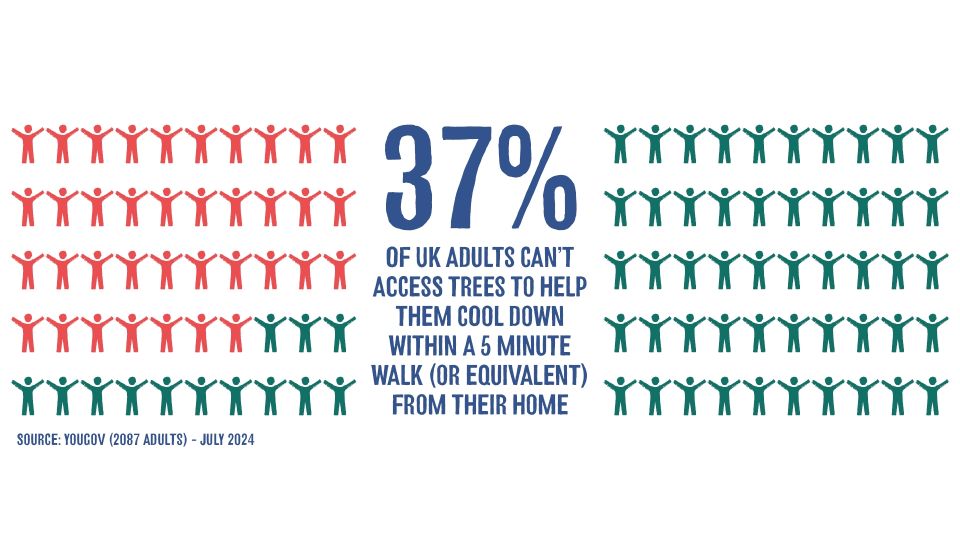
However, the survey shows that many people across the UK have to go further, with over 1 in 3 UK adults (37%) unable to access trees to help them cool down in hot weather within a 5 minute walk (or equivalent) from their home. Indeed, most urban areas in the UK have a tree canopy cover of less than 20% (according to the Tree Equity Map), which is the minimum recommended for UK towns. In some places, it's as low as 2%.
We've consistently worked towards greater tree equity, putting disadvantaged communities first for 30 years. We work closely with local communities to achieve fairer access to the benefits that flow from trees in urban places, such as improved water and air quality. In hotter temperatures, urban trees are vital to help keep us cool and safe.
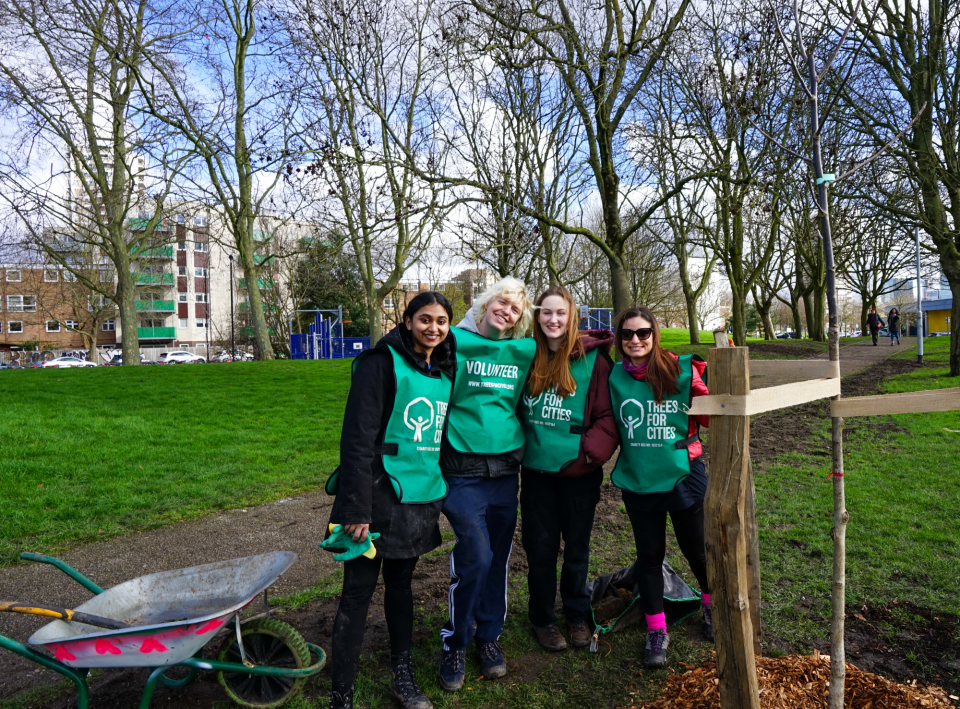
Find out more about the power of urban trees to cool our towns and cities, and share our campaign to help increase public awareness.
Get involved in other ways to support and plant more trees where they’re needed most.
All figures, unless otherwise stated, are from YouGov Plc. Total sample size was 2087 adults. Fieldwork was undertaken between 19 - 22 July 2024. The survey was carried out online. The figures have been weighted and are representative of all UK adults (aged 18+).
Donate to Trees for Cities and together we can help cities grow into greener, cleaner and healthier places for people to live and work worldwide.
Donate